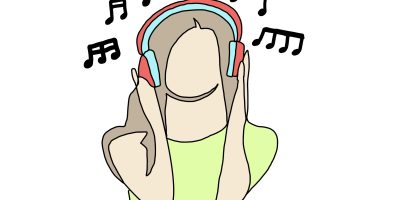I am an introvert.
Having read Quiet: The Power of Introverts in a World that Can’t Stop Talking by American author and former lawyer Susan Cain, I am also a self-described advocate for being introverted.
During a mock interview with a peer leader from V1’s Living-Learning Community last term, I mentioned the word “introvert” in my response to the all-anticipated “How would you describe yourself?” question.
So, you can imagine my dismay when the peer leader suggested something along the lines of, “I wouldn’t use ‘being introverted’ to describe myself. Employers don’t like to hear that.”
It’s the 21st century, yet there is still something held against “introverted people.”
I’m not accusing every “extroverted” person of discriminating against us “introverted” people, but I hope that they can better understand us and that we can better understand ourselves.
Hypothetically, a conversation is supposed to be an exchange of ideas. However, growing up, I’ve been accustomed to being talked at by more “extroverted” peers who assume that my silence is an okay for them to continue speaking.
As much as I enjoy being a listener, I—like every other human being—have my own opinions and would like to express them under appropriate circumstances. But if extroverts fill up a conversation with their own chatter, not only do I lack any opportunity to add in my two cents, but I cannot think and process clearly with the constant buzz of his or her voice, let alone formulate an appropriate response.
As a matter of fact, I love being social and attending social events—at times. I delight in catching up with friends and making new ones as much as any “extroverted” individual; however, unlike “extroverted” peers, I need plenty of time to recharge my batteries—time alone.
I cannot go out for long periods of time or go out too frequently without feeling exhausted, so dearest “extroverted” beings, please respect my need to be alone. Don’t take it personally. It isn’t you; it’s me—literally.
For the “typical extroverted individual”, he or she thrives in an environment with plenty of stimuli. To me, loud noises and bright lights overstimulate my senses, overwhelming me, and draining me psychologically. It makes me want to shut myself out. My internal world is a safe haven, providing me with a tranquil retreat from a world that cannot seem to silence itself.
Interestingly enough, throughout my experience in Canada’s public education system, I have not once heard a teacher tell an extroverted peer to “be quiet”, yet I have been told to “speak up more.”
Why must our society shove extroversion down everybody’s throats? Why must our image of success be of somebody who is vocal about his or her strength rather than somebody who exudes an image of “quiet strength”?
Being introverted is no better than being extroverted. It’s simply important to recognize how fundamentally differently people thrive at either end of the extroversion-introversion spectrum—let alone the multitude of ambiverted people in between. We must accept each other’s differences and work together to create professional and personal environments that allow for ambiverted, extroverted, and introverted people to coexist.
After all, embracing diversity in people’s personalities is as vital as embracing ethnic, racial, spiritual, and sexual diversity.



Leave a Reply